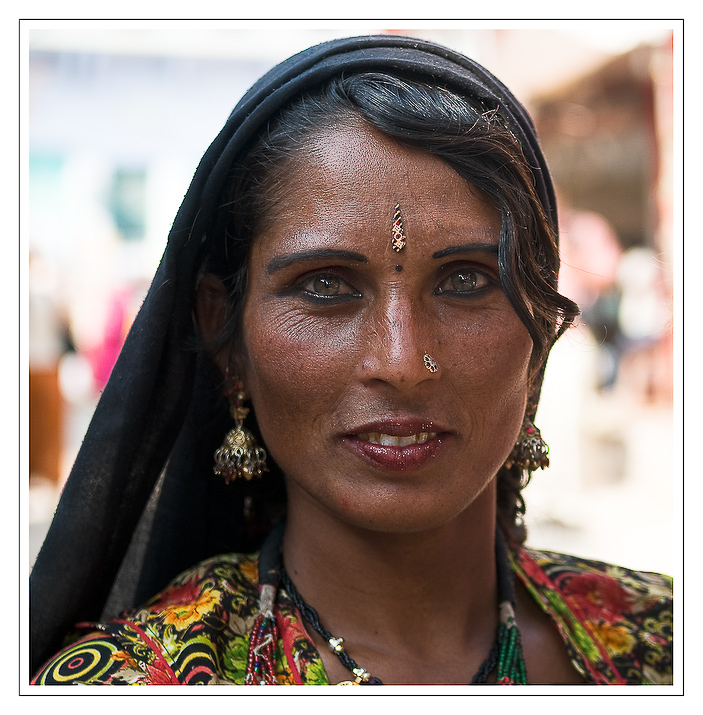Exploring The Fascinating World Of Gypsies: Culture, History, And Modern Life
The term "Gypsy" often conjures images of vibrant festivals, colorful clothing, and a nomadic lifestyle. This article delves into the rich history, unique cultural practices, and modern-day realities of the Romani people, often referred to as Gypsies. Understanding their legacy is essential in appreciating their contributions to society and acknowledging the challenges they face today.
Throughout history, the Romani have been misunderstood and marginalized, often facing discrimination and prejudice. Despite these challenges, they have maintained a distinct identity, preserving their traditions while adapting to the changing world around them. In this article, we will explore various aspects of Romani culture, including their origins, social structures, music, and the impact of modern society on their way of life.
As we embark on this journey through the Gypsy world, we will also focus on the importance of recognizing their rights and promoting respect for their heritage. Join us as we uncover the layers of this vibrant culture that has fascinated people for centuries.
Table of Contents
- 1. The History of Gypsies
- 2. Understanding Romani Culture
- 3. The Role of Music in Romani Life
- 4. Social Structure and Family Life
- 5. Modern Issues Facing Gypsies
- 6. Myths and Misconceptions about Gypsies
- 7. Conclusion
- 8. Call to Action
1. The History of Gypsies
The origins of the Romani people trace back to northern India, particularly the Rajasthan region. Historical evidence suggests that they began migrating towards Europe around the 10th century. This migration led them through Persia and the Byzantine Empire before finally settling in various parts of Europe.
Over the centuries, the Romani faced persecution, often being viewed with suspicion and disdain. In the 15th and 16th centuries, laws were enacted in various countries to suppress their movement, forcing many to abandon their traditional nomadic lifestyles. The discrimination continued into the 20th century, culminating in the Holocaust, where hundreds of thousands of Romani were murdered by the Nazis.
Today, the Romani are recognized as a distinct ethnic group, with ongoing efforts to secure their rights and improve their living conditions across Europe and beyond.
2. Understanding Romani Culture
2.1 Language and Dialects
The Romani language, Romani or Romany, is an Indo-Aryan language that has numerous dialects. While many Romani people may speak the language, others have adopted the languages of the countries in which they reside. Linguists have identified several dialects, including Kalderash, Lovari, and Vlax, each with unique characteristics.
2.2 Traditions and Festivals
Romani culture is rich in traditions, often centered around family and community. Festivals play a significant role in their social life, celebrating life events such as weddings, births, and seasonal changes. One of the most notable festivals is the "Romani Day," celebrated on April 8th, which honors Romani culture and promotes awareness of their rights.
3. The Role of Music in Romani Life
Music is an integral part of Romani culture, serving as a means of storytelling and cultural expression. It encompasses various styles, including traditional folk music, flamenco, and jazz. The Romani have significantly influenced European music, particularly in countries like Spain and Hungary.
- Instruments: Commonly used instruments include the violin, accordion, and guitar.
- Dance: Romani music is often accompanied by lively dance, which is an essential aspect of their celebrations.
4. Social Structure and Family Life
Romani society is typically organized around close-knit family units, with strong emphasis placed on respect for elders and communal living. Family ties are crucial, and marriages often occur within the community, preserving cultural traditions.
4.1 Gender Roles
Gender roles in Romani culture can be traditional, with distinct responsibilities for men and women. Men often take on the role of providers, while women are typically responsible for household duties and child-rearing.
4.2 Education and Socialization
Access to education is a significant issue for many Romani children, often due to economic barriers and social stigma. Efforts are being made to improve educational opportunities and promote integration into mainstream society.
5. Modern Issues Facing Gypsies
Despite the rich cultural heritage of the Romani, they face numerous challenges in modern society. Discrimination, poverty, and lack of access to education and healthcare are prevalent issues that continue to affect their communities.
The European Union has implemented various initiatives aimed at improving the living conditions of Romani people, but much work remains to be done. Awareness and advocacy are crucial in addressing these systemic issues and promoting equality.
6. Myths and Misconceptions about Gypsies
Many stereotypes and misconceptions surround the Romani people. Some common myths include:
- All Romani are thieves or con artists.
- Romani people do not want to integrate into society.
- They all live a nomadic lifestyle.
These stereotypes are often rooted in historical prejudice and do not reflect the diversity and complexity of Romani culture.
7. Conclusion
In conclusion, the world of Gypsies, or Romani people, is rich and diverse, filled with history, culture, and resilience. Acknowledging their past and present struggles is essential in fostering understanding and respect for their unique contributions to society. By recognizing their rights and promoting inclusion, we can help create a more equitable world for all.
8. Call to Action
We encourage you to share your thoughts on this article in the comments below. If you found this information valuable, please share it with others and explore more about the rich cultures around the world.
Thank you for reading, and we hope to see you back here for more insightful articles!
Gypsy Rose Blanchard: A Deep Dive Into Her Life, Public Perception, And Controversies
Kate Beckinsale Boyfriend 2024: A Look Into Her Love Life
Frankie Muniz And His Journey To Parenthood: Embracing Multiple Kids


